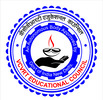Electronics is one of the rapidly growing industries in current scenario. Innovation and atomization have led to introduction of a huge number of products that makes human life easier. But the major issue here is, that the life of this devices cannot be determined. The life span of the device is decided by the way it is handled and used, functioning duration, quality of raw material used, and so on.

Once the devices unexpectedly fail or reaches to a stage where its performance becomes very poor, it becomes a scrap. Now disposing this scrap becomes a task. The waste generated here are put under a special category called E-waste. It is so because the electronic devices that are actually thrown into the trash bins, has a lot of components that are put into the category of rare metals, scarce metals, minerals that can be reused. These materials on being separated from the device will lead to recycling of almost 90% of the raw material used to manufacture it.
But since there is no enough awareness among the consumers, and lesser initiative from the manufacturer’s end to reprocess and recycle the products, the amount of E-waste that is being generated in increasing drastically by every passing year. This practice of improper disposal of waste electronic devices is not only generating e-waste but also is leading to exploitation of natural resources like silicon, copper, silver etc., which are most commonly used in manufacturing electronic equipment.
Countries across the globe are currently promoting ecofriendly and sustainable living, to reduce the quantity of wastes generated by the global population, and also to save the natural resources for the next generation. Hence implementing multiple favorable practices in the manufacturing process by taking the environment into account is now found widely. Every organization has a team of members who constantly check on it, and ensure that the eco system is not disturbed by their functioning.
We at Nautical Point offer courses related to environmental safety. The basic qualification to pursue these courses are Secondary school certification – pass/fail, Higher secondary school certification – pass/fail, ITI, Diploma, any Bachelor Degree. For any clarifications or to know further details reach us out at www.nauticalcti.com.










